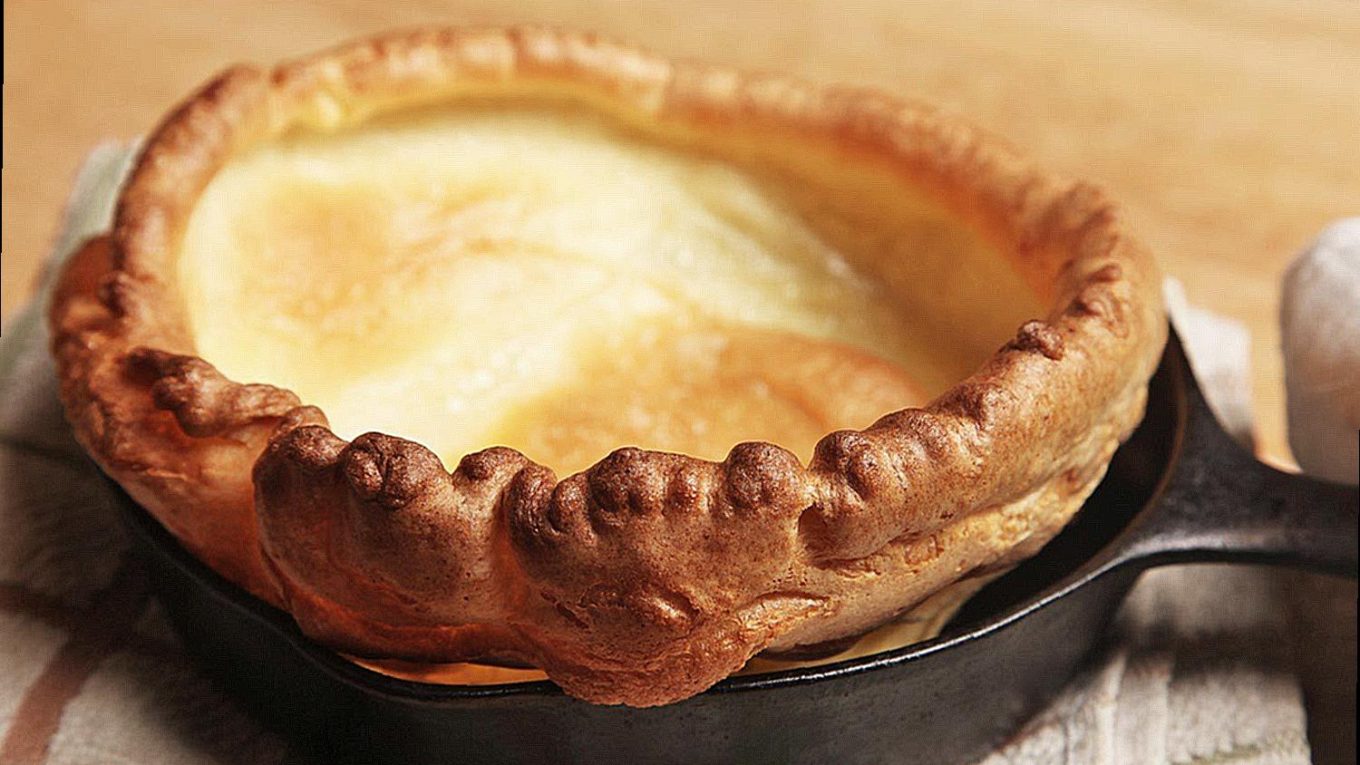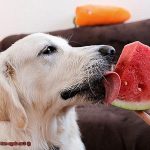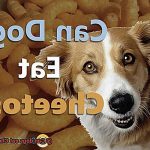Can dogs eat beef dripping Yorkshire puddings?
Ever wondered if your furry friend can join in on the scrumptious delight of beef dripping Yorkshire puddings? Well, you’ve come to the right place. Today, we’re diving into the world of canine nutrition to explore the tantalizing possibility of treating our four-legged pals to these mouthwatering goodies.
Now, conventional wisdom might tell us that sharing our indulgences with our pets is a no-no. But recent studies have given us a fresh perspective on how a well-balanced diet can benefit our canine companions. So, let’s embark on this culinary adventure together and discover how beef dripping Yorkshire puddings might just contribute to your pup’s overall well-being.
In this blog post, we’ll dig deep into the nutritional aspects that make beef dripping Yorkshire puddings a potential treat for your furry friend. We’ll weigh the pros and cons, taking into account your pooch’s specific dietary needs and any potential health implications. From essential vitamins and minerals to possible tummy troubles, we’ll leave no stone unturned as we navigate through this tantalizing question.
But wait, responsible pet parenting is key. That’s why we’ll also provide essential guidance on portion control, preparation tips, and even suggest dog-friendly alternatives for those seeking a safer option. Whether you’re an enthusiastic dog owner looking for new ways to spoil your fur baby or simply curious about how human treats can fit into their health equation, this blog post is tailor-made for you.
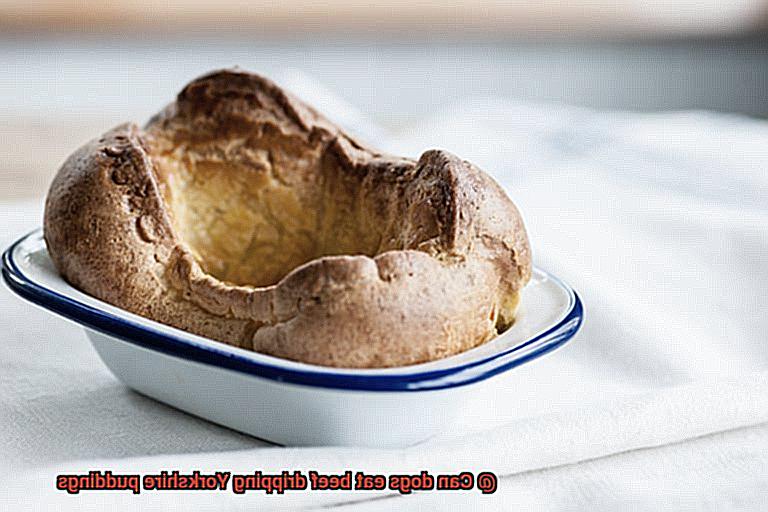
So grab yourself a cuppa tea, sit back, and let’s embark on this enlightening journey together. We’ll challenge common misconceptions and uncover the potential benefits of sharing this iconic British delight with your beloved best friend.
Note: Before making any changes to your dog’s diet, it’s crucial to consult with a veterinarian who can provide personalized guidance based on your dog’s individual needs and health requirements.
What Are Yorkshire Puddings?
Contents
- 1 What Are Yorkshire Puddings?
- 2 Is Beef Dripping Safe for Dogs to Eat?
- 3 Other Ingredients in Yorkshire Pudding That Could Be Harmful to Dogs
- 4 Moderation Is Key When Feeding Human Foods to Dogs
- 5 Should You Consult Your Veterinarian Before Feeding Your Dog Any Human Food?
- 6 How to Prepare a Safe Serving of Beef Dripping Yorkshire Pudding for Your Dog
- 7 Signs of Digestive Upset After Eating Yorkshire Puddings
- 8 The Bottom Line: Can Dogs Eat Beef Dripping Yorkshire Puddings?
- 9 Conclusion
Today, we’re going to dive into the delicious world of Yorkshire puddings. If you’re wondering what these delectable treats are and how they fit into your culinary adventures, you’ve come to the right place. Let’s get started.
What Exactly Are Yorkshire Puddings?
Yorkshire puddings are a traditional British dish that is often served alongside roast beef. These golden-brown beauties are made from a simple batter consisting of flour, eggs, and milk. The batter is poured into muffin tins or a large baking dish and baked until it puffs up and becomes crispy on the outside, while remaining soft and doughy on the inside.
How Do You Use Yorkshire Puddings?
Yorkshire puddings have become synonymous with roast beef dinners in British cuisine. They are typically served as a side dish alongside the main course of roast beef and gravy. The light and airy texture of Yorkshire puddings makes them the perfect vessel for soaking up all that delicious gravy.
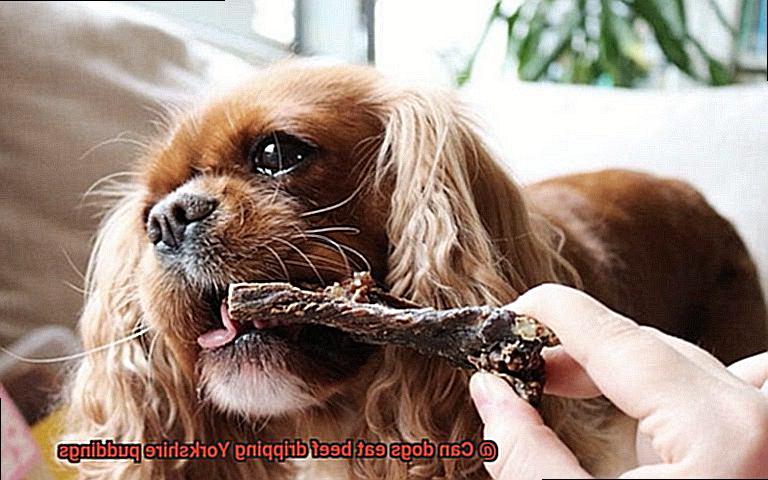
But Yorkshire puddings aren’t just limited to roast beef dinners. They can also be enjoyed on their own as a snack or even filled with meats, vegetables, or other fillings to create a more substantial meal. The possibilities are endless.
Tips for French Bulldogs and Their Humans
While Yorkshire puddings may sound tempting to share with your French Bulldog, it’s important to remember that they should only be given as an occasional treat and in small amounts. Here are some things to keep in mind:
- Avoid Seasonings: Yorkshire puddings often contain ingredients like onions and garlic, which can be toxic to dogs. Make sure any Yorkshire pudding you share with your furry friend is free from these harmful seasonings.
- Moderation: Dogs are carnivorous animals, and their natural diet consists mainly of meat. While small amounts of fat can be beneficial for dogs, excessive consumption can lead to weight gain and health issues. So, it’s best to limit the amount of Yorkshire pudding you share with your pup.
- Consult a Veterinarian: Before introducing any new food into your dog’s diet, it’s always a good idea to consult with a veterinarian. They can provide guidance based on your dog’s specific dietary needs and any underlying health conditions they may have.
- Monitor Your Dog: After sharing Yorkshire pudding or any new food with your dog, monitor them closely for any signs of digestive upset. If they experience vomiting or diarrhea, it’s best to discontinue feeding the food item and seek veterinary advice if necessary.
Yorkshire puddings are a delicious and versatile dish that adds a touch of elegance to any meal. While they can be enjoyed by humans, it’s important to remember that they should only be given to French Bulldogs as an occasional treat and in moderation. Always prioritize your pup’s health by feeding them a balanced and appropriate diet formulated for dogs.
Is Beef Dripping Safe for Dogs to Eat?
Before you share that delicious beef dripping with your furry friend, let’s take a closer look at whether it’s safe for dogs to eat.
First things first, dogs and humans have different dietary needs and digestive systems. While beef dripping may be a tasty treat for us, it may not be suitable for our four-legged companions. One major concern is the high fat content in beef dripping. While fat is an essential part of a dog’s diet, consuming too much can lead to health issues like obesity and pancreatitis.
Pancreatitis is no joke, my friends. It’s a condition where the pancreas becomes inflamed, usually due to a high-fat diet. This can cause symptoms like abdominal pain, vomiting, and diarrhea in our beloved pooches. And let’s not forget about steatitis or yellow fat disease – inflammation of the fatty tissues in their bodies. Yikes.
But wait, there’s more. Some recipes might include seasonings or additives like onions, garlic, or salt. Now, I don’t know about you, but those ingredients don’t sound too dog-friendly to me. Onions and garlic can damage a dog’s red blood cells and lead to anemia. And salt? Well, that can cause electrolyte imbalances and increase the risk of dehydration in our furry pals.
Now, I’m not saying you should banish beef dripping from your dog’s life completely. A small amount as an occasional treat won’t hurt them. Just remember to keep it in moderation and ensure that it doesn’t contain any harmful ingredients.
When it comes to your dog’s diet, it’s always best to consult with a veterinarian. They can provide personalized advice based on your dog’s specific needs. So, if you’re unsure about whether beef dripping is safe for your pup or have any concerns about their diet, don’t hesitate to reach out to the experts.
Other Ingredients in Yorkshire Pudding That Could Be Harmful to Dogs
Picture this: you’re sitting at the dinner table, enjoying a mouthwatering beef dripping Yorkshire pudding. Your loyal French bulldog is giving you those irresistible puppy-dog eyes, begging for a bite. But before you indulge their pleading gaze, it’s important to understand that not all human foods are safe for our furry friends. In fact, there are several other ingredients in Yorkshire pudding that could be harmful to dogs, especially French bulldogs.
- Onions and Garlic: These aromatic vegetables are often used to enhance the flavor of Yorkshire puddings. However, both onions and garlic are toxic to dogs. They contain compounds that can damage a dog’s red blood cells, leading to anemia. So while you may love the taste of these ingredients in your Yorkshire pudding, keep them far away from your beloved pooch.
- Salt: We often use salt to bring out the flavors in our favorite dishes, including Yorkshire puddings. However, excessive salt consumption can be dangerous for dogs. It can lead to sodium ion poisoning, causing symptoms like vomiting, diarrhea, tremors, and even seizures. So remember to keep the salty treats out of reach from your French bulldog.
- Baking Powder: Baking powder is a common ingredient used to make Yorkshire puddings rise and become light and fluffy. But did you know that it can be harmful to dogs? Ingesting baking powder can upset your dog’s stomach and lead to vomiting and diarrhea. It’s best to avoid sharing your Yorkshire pudding with your four-legged friend if it contains baking powder.
- Dairy Products: Traditional Yorkshire puddings are made with milk or cream, which are dairy products. While some dogs can tolerate small amounts of dairy, many French bulldogs are lactose intolerant. Feeding them dairy products can result in digestive issues like diarrhea and bloating. Plus, the high-fat content in dairy can contribute to pancreatitis, a painful inflammation of the pancreas.
- Wheat Flour: The main ingredient in Yorkshire pudding is wheat flour. While wheat itself is not toxic to dogs, some French bulldogs may have sensitivities or allergies to gluten found in wheat. Gluten intolerance can cause digestive problems and allergic reactions in affected dogs. If your French bulldog has known sensitivities to wheat or gluten, it’s best to skip the Yorkshire pudding altogether.
Now that you know about the potential risks of feeding Yorkshire pudding to your French bulldog, what can you do to keep them safe? Well, it’s simple. Stick to a well-balanced diet formulated specifically for dogs. There are plenty of tasty and nutritious dog treats available that are safe and enjoyable for your furry friend.
Moderation Is Key When Feeding Human Foods to Dogs
French Bulldogs are known for their adorable faces and lovable personalities. It’s no wonder that we often want to spoil them with a taste of our own food. While it’s okay to share some human foods with your furry friend, it’s crucial to remember the importance of moderation.
Not All Human Foods Are Safe for Dogs

As omnivores, dogs can eat a variety of foods, including some human ones. However, not all human foods are safe for dogs to consume. Some foods can be toxic and cause serious health issues. It’s essential to do your research and consult with a veterinarian before sharing any human food with your French Bulldog.
Health Issues from Overindulgence
Feeding dogs too much of certain human foods can lead to various health issues. Obesity is a common problem among dogs, and indulging them with excessive treats can contribute to weight gain. Additionally, certain foods can cause pancreatitis, an inflammation of the pancreas, and digestive problems in dogs.
The Dangers of Beef Dripping Yorkshire Puddings
While a small amount of beef dripping Yorkshire pudding may not cause immediate harm, regular consumption can lead to long-term health issues in French Bulldogs. Beef dripping is high in fat and calories, which can contribute to weight gain and other health problems. It’s best to avoid feeding your dog Yorkshire puddings made with beef dripping altogether.

Consider Your Dog’s Nutritional Needs
Before offering any kind of human food to your French Bulldog, consider their overall diet and nutritional needs. Dogs require a balanced and nutritious diet to thrive. Some human foods may lack essential nutrients or contain ingredients that are harmful to dogs. Always prioritize their well-being when deciding what to feed them.
Safe Treat Options
If you want to treat your French Bulldog with a Yorkshire pudding, opt for a plain one without any added fats or seasonings. Even then, it should only be given as an occasional treat and in small portions. There are also many safe and nutritious dog treats available on the market that are specifically formulated for canine consumption.
Should You Consult Your Veterinarian Before Feeding Your Dog Any Human Food?
While it can be tempting to spoil them with a taste of your own meals, it’s important to remember that not all human foods are suitable for dogs. That’s why consulting your veterinarian before offering any human food to your dog is crucial.
Why is it so important to consult with a veterinarian? Well, let me break it down for you:
- Dogs have different dietary needs than humans: While some human foods may be safe for dogs in moderation, others can be toxic or harmful. Veterinarians have the knowledge and expertise to assess your dog’s individual dietary needs and can provide guidance on what foods are safe and appropriate for them.
- Avoid health issues: Feeding your dog inappropriate foods can lead to a host of health problems such as obesity, digestive issues, and nutrient imbalances. For example, beef dripping Yorkshire puddings might be a favorite in your household, but their high fat content can potentially cause pancreatitis, a painful inflammation of the pancreas, in dogs.
- Consider individual factors: Your veterinarian will take into account your French Bulldog’s age, breed, weight, and any existing health conditions when advising you on their dietary choices. This personalized approach ensures that your dog’s specific needs are met and minimizes the risk of adverse health effects.
- Toxic foods: Some human foods are known to be toxic to dogs. Chocolate, onions, grapes, and garlic are just a few examples of foods that can cause serious health complications if ingested by dogs. Even seemingly harmless fruits and vegetables should be introduced in moderation and under veterinary guidance as some may contain substances that are toxic to dogs or may cause gastrointestinal upset.
By consulting your veterinarian before feeding your French Bulldog any human food, you can ensure that their nutritional needs are met while minimizing the risk of health issues. Your vet can also recommend appropriate alternatives or specific commercial pet foods that meet your dog’s dietary requirements.
Remember, every dog is unique, and what may be safe for one dog may not be suitable for another. So, when in doubt, consult with your veterinarian to determine what human foods are safe for your specific furry friend. Keep them healthy and happy by making informed decisions about their diet.
How to Prepare a Safe Serving of Beef Dripping Yorkshire Pudding for Your Dog
If you’re a fan of the traditional British dish, beef dripping Yorkshire pudding, you might be tempted to share it with your French bulldog. However, it’s essential to consider your furry friend’s specific dietary needs and safety before indulging them. In this guide, we’ll explore how to prepare a safe serving of beef dripping Yorkshire pudding for your beloved French bulldog.
Understanding Beef Dripping Yorkshire Pudding:
Beef dripping Yorkshire pudding is a mouthwatering dish made from a batter of eggs, flour, and milk or water, cooked in the rendered fat from beef. While it may be a delicious treat for humans, it may not be suitable for dogs due to certain ingredients and cooking methods.
The Importance of Nutrition:
Dogs have different nutritional needs than humans. Yorkshire pudding lacks essential nutrients that dogs need for optimal health. Before sharing any human food with your furry friend, consult with a veterinarian to ensure it is safe for their specific dietary requirements.
Prepare a Dog-Friendly Version:
To create a safe serving of beef dripping Yorkshire pudding for your French bulldog, opt for lean cuts of beef or other protein sources instead of beef dripping. Use whole wheat flour or grain-free alternatives and low-sodium broth in place of beef dripping. Ensure you follow appropriate ingredient proportions by consulting with a veterinarian or canine nutritionist.
The Step-by-Step Process:
- Cook the meat: Choose lean cuts of beef and cook them thoroughly before adding them to the batter.
- Mix the batter: Use dog-friendly ingredients like whole wheat flour or grain-free alternatives, eggs, and low-sodium broth.
- Bake the pudding: Pour the batter into muffin tins or a baking dish and bake it until golden brown.
Moderation is Key:
Remember that treats should only constitute a small portion of your French bulldog’s diet. Yorkshire pudding or any other treats should not replace balanced meals. It’s important to maintain a well-balanced diet for your furry friend’s overall health.
Additional Tips for Safe Serving:
- Let it cool: Allow the Yorkshire pudding to cool down completely before offering it to your dog.
- Bite-sized pieces: Cut the pudding into small, bite-sized pieces to make it easier for your French bulldog to consume.
- Monitor for reactions: Observe your dog after eating the pudding for any adverse reactions. If any occur, discontinue feeding and consult with a veterinarian.
Signs of Digestive Upset After Eating Yorkshire Puddings
If you’ve ever treated your French bulldog to a delicious Yorkshire pudding, you may have noticed some signs of digestive upset afterward. Dogs have different digestive systems than humans, so it’s important to be aware of the potential consequences of feeding them certain foods. Here are some signs to watch out for if your furry friend has indulged in Yorkshire puddings:
- Diarrhea: One of the most common signs of digestive upset in dogs is diarrhea. If your pup’s stool becomes loose or watery after eating Yorkshire puddings, it could be a sign that their digestive system is struggling to process the high fat content.
- Vomiting: Another telltale sign of digestive upset is vomiting. If your dog starts throwing up after enjoying a Yorkshire pudding, it’s a clear indication that their system is having difficulty breaking down the rich ingredients.
- Abdominal discomfort: Dogs experiencing digestive upset may show signs of abdominal discomfort. They may appear restless, whine, or exhibit signs of discomfort when you touch their belly. This can be a result of the high-fat content in Yorkshire puddings causing indigestion.
- Loss of appetite: If your French bulldog suddenly loses interest in their food after indulging in Yorkshire puddings, it could be a sign that their digestive system is struggling. The rich and heavy nature of these treats can leave them feeling full and uncomfortable.
- Excessive gas: Dogs with upset stomachs may experience increased gas production. If you notice your furry friend passing gas more frequently or with a particularly strong odor after enjoying Yorkshire puddings, it’s another sign that their digestive system is not happy.
It’s essential to remember that every dog is different, and while some may handle Yorkshire puddings without any issues, others may experience severe symptoms even with a small amount. If you notice any signs of digestive upset in your French bulldog, it’s important to monitor them closely and seek veterinary advice if the symptoms persist or worsen.
To prevent digestive upset, it’s best to avoid feeding Yorkshire puddings or other high-fat foods to your furry friend. Stick to a balanced and appropriate diet recommended by your veterinarian. If you still want to treat your dog with a similar taste, there are alternative options available. You can make homemade dog-friendly treats using healthier ingredients and cooking methods such as whole wheat flour and lean meats cooked in a healthier manner.
Remember, always consult with your veterinarian before introducing any new foods into your dog’s diet, especially if they have a history of digestive issues or food sensitivities. Your vet will be able to provide specific guidance based on your dog’s individual needs.
The Bottom Line: Can Dogs Eat Beef Dripping Yorkshire Puddings?
French bulldogs are beloved pets known for their adorable squishy faces and friendly personalities. As a responsible dog owner, you want to ensure that your furry friend stays healthy and happy. One question that often comes up is whether it’s safe to feed them beef dripping Yorkshire puddings. Let’s dig into the topic and find out the bottom line.
Why the Caution?
While beef dripping Yorkshire puddings may be a mouthwatering treat for us, they may not be the best choice for our four-legged companions. Here’s why:
- High Saturated Fat Content: Beef dripping is rich in saturated fat, which can lead to obesity and other health issues in dogs. French bulldogs already have a tendency to gain weight easily, so it’s important to be mindful of their fat intake.
- Potential Allergens: The batter used to make Yorkshire puddings contains ingredients like flour and milk, which can cause digestive upset in some dogs. French bulldogs are known to have sensitive stomachs, so it’s crucial to monitor their reactions to new foods.
- Seasonings and Spices: Some recipes may include ingredients like onion powder or garlic, which can be toxic to dogs if consumed in large quantities. These ingredients can cause gastrointestinal irritation and even damage to red blood cells.
Safe Alternatives
If you’re determined to treat your French bulldog to a taste of Yorkshire pudding, there are safer alternatives you can consider:
- Healthier Cooking Oil: Instead of using beef dripping, opt for a healthier oil like olive oil or coconut oil for cooking. These oils contain healthier fats and can be better for your dog’s overall health.
- Dog-Friendly Version: You can also make a dog-friendly version of Yorkshire pudding by substituting ingredients like wheat flour with alternative flours like rice or oat flour. This way, you can control the ingredients and make it more suitable for your furry friend.
Consult with Your Veterinarian
Before introducing any new food into your French bulldog’s diet, it’s always best to consult with your veterinarian. They can provide personalized advice based on your dog’s specific dietary needs and health conditions. They may also be able to recommend alternative treats that are safer and healthier for your furry friend.
Lu8dvVWGOq8″ >
Conclusion
In conclusion, it is not recommended to feed beef dripping Yorkshire puddings to dogs.
While the rich and savory flavor may tempt their taste buds, these puddings are high in fat and can lead to digestive issues and pancreatitis in dogs. It’s important to prioritize your furry friend’s health and opt for dog-friendly treats instead.
Stick to a balanced diet that includes appropriate dog food and occasional dog-safe snacks.
